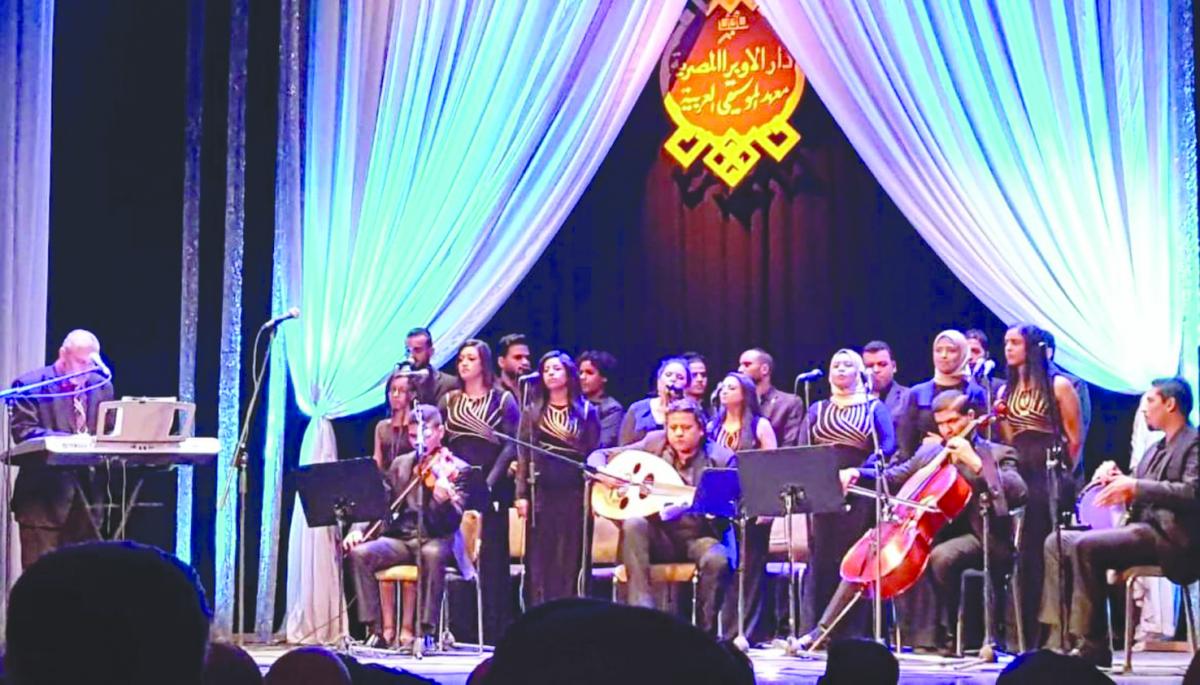* My relationship with my cousins is great, and I had cordial relations with Iman up until four or five months ago when a rift between us occurred about our grandfather’s catalog.
* Sayyed Darwish first started by singing religious songs and then he enrolled at the Italian Musical Institute where he learned to play instruments and write musical notes.
* My grandfather also the first person to use polyphony in Eastern music.
Saad Zagloul was much more than just a composer. His songs captured the revolutionary spirit that enamored the Egyptian populace in the early twentieth century, as he was one of the icons of the 1919 Revolution. It was during that year alone when he composed 75 revolutionary songs that inspired Egyptians to rise up against British occupation. While his most well-known work is “Bilady, Bilady” (My Country, My Country), which became Egypt’s national anthem, his other songs have become an integral part of Egyptian culture. Among such songs include: “El Helwa Di Amet Tiegen” (This Beautiful Girl Woke Up to Start Preparing Bread Dough), “Qom Ya Masry” (Wake Up You Egyptians), “Zorony Kol Sana Mara” (Visit Me Once a Year), as well as many others which have been covered by various artists after his passing. Sayed Darwish lived between the years 1892 and 1923 and died at the young age of 31. Despite his short time on this earth, he was able to create a revolution in the world of Egyptian and Arabic music as well as influence many artists in the region. Like many singers after him, he started out as a student at the Islamic Azhar University, but eventually found his way to music. He started his musical journey singing in Egyptian streets and cafes and eventually transitioned to performing at theaters. Today, his grandson, Mohamed Hassan Sayed Darwish, is the leader of the Sayed Darwish Band which performs the late singer’s songs to modern audiences. Mohamed Darwish is also the head of the Sayed Darwish association which aims to preserve his grandfather’s legacy. This past year marked two important milestones, first, it marked what would have been Darwish’s 127th birthday and more importantly, 2019 also marked the centennial of the 1919 Revolution. As a result of both these anniversaries, Sayed Darwish’s name reentered Egyptian airwaves. Majalla recently sat down with Mohamed Darwish as he spoke to us about his efforts to preserve and spread his grandfather’s legacy, his grandfather’s influence on Egyptian music and the conspiracy theory which holds that Darwish’s death was caused by poisoning from British occupational forces.
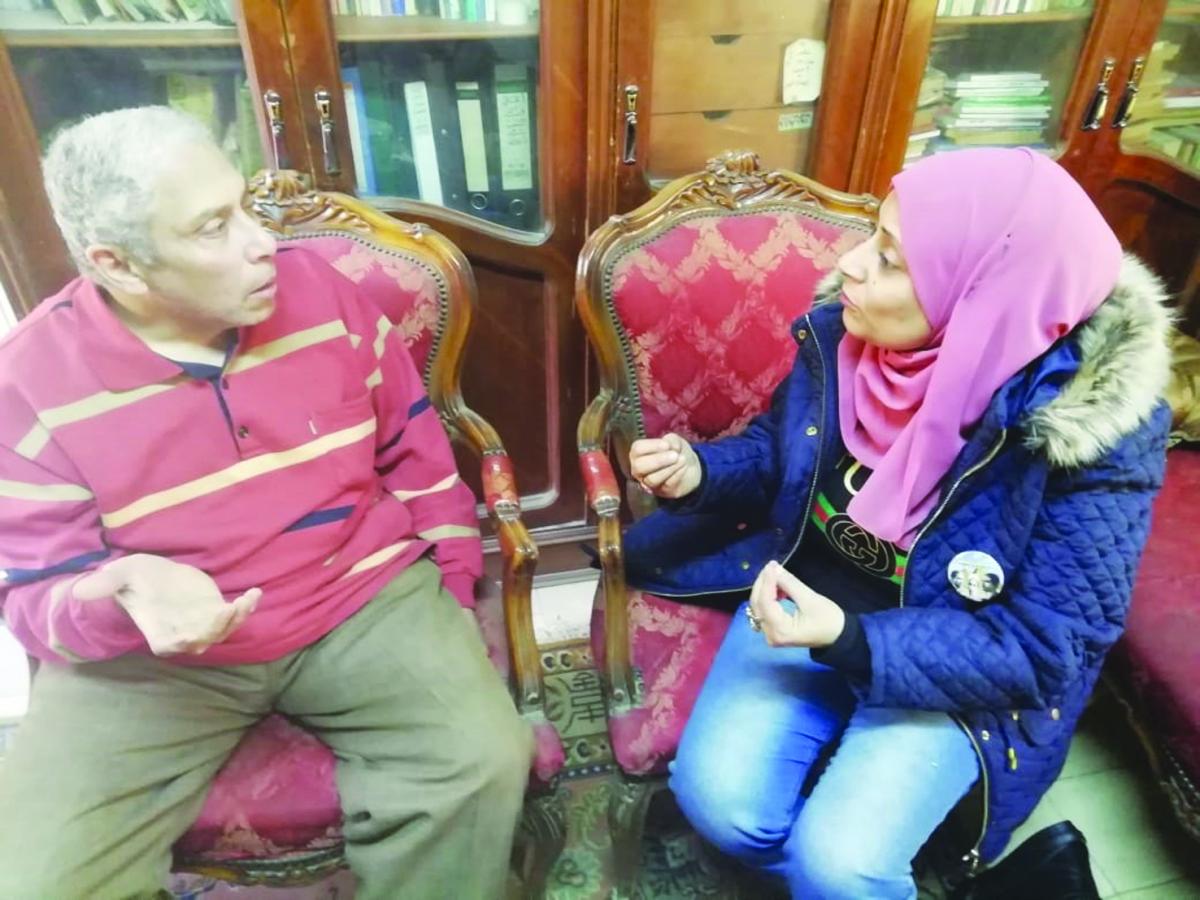
Q: Tell us about your grandfather’s familial life.
A: My grandfather was married multiple times. His first marriage resulted in the conception of my uncle Mohamed El Bahr, but it ultimately ended in divorce shortly afterward. He then married his cousin, so he can stay close to his Alexandrian heritage, but they never really got along and they divorced only two months after their wedding and sadly she passed away shortly after the divorce. The tragedy encouraged him to compose the song “Mazlouma Wayak, Ya Ibn Amaty” (You Have Been Wronged, My Cousin). His family then pressured him into an arranged marriage with a woman he never met before, then on the night of the wedding he saw her face for the first time and he just up and left the house and disappeared! He then moved to Cairo and bought the house that we are sitting in right now. Egyptian folk lyricist Badie' Khayri actually helped my grandfather purchase the home, as he also happened to live on the same street, which was conveniently located near the Rowad El Farg and the Emad El-Din theaters.
One of his neighbors in his new home happened to be a young woman named Galila, and he went to her parents to ask for her hand in marriage. After they got married, they went on to have two boys, my uncle Yahia, and my father Hassan. Despite the fact that my grandmother was really young when my grandfather passed away, she never remarried afterward. Of course, I never had the opportunity to meet my grandfather since he passed away when my father was only two years old. My father would then dedicate his entire life towards preserving my grandfather’s legacy, as such he gathered all the information he could find on him and collected every one of his handwritten papers and through that he was able to produce six books on Darwish’s life.
Q: Iman El Bahr Darwish’s use of your grandfather’s work in music and cinema has made people think that he is the only heir to his catalog; do you have a publishing partnership with him with regards to the catalog?
A: My relationship with my cousins is great, and I had cordial relations with Iman up until four or five months ago when a rift between us occurred about our grandfather’s catalog. A court then granted both of us custody of the catalog, however, he wasn’t satisfied with the ruling and asked for an attorney to help him gain more rights to Darwish’s work. Naturally, it is a huge honor to be one of the custodians, an honor that a court ruled that I was entitled to, so how could I relinquish it?! I should note that I own a larger portion of the catalog, let me put it this way if the catalog was gold, then Iman would have 9 carats, while I would own 12 carats. We haven’t been on speaking terms ever since that rift.
Q: Your grandfather started out as a student at the religious institute of Al Azhar, how did he journey away from Azhari scholarship and go into music?
A: My grandfather always adored music, and one of his teachers actually encouraged him to pursue it as a career. So he quit Al Azhar to follow his artistic ambitions, he first started by practicing religious songs and then he enrolled at the Italian Musical Institute where he learned to play instruments and write musical notes. His life had many twists and turns and he would find himself doing many labor jobs, where many workers would sing to raise their spirits. As such, he found another outlet where he could sing to an audience and showcase his talents just like the way he would do in cafes and theaters. Similar to how the serendipitous meeting with Khayri was a turning point in my grandfather’s life, so was his eventual meeting with Sheikh Salama Higazi would mark the start of a wonderful work partnership as he recognized my grandfather’s talents and often asked to write songs for him. Both Khayri and Higazi had the knack for picking up simple songs that people and laborers would sing on the street and transform them into full-blown compositions.
Q: Who were the most important people in your grandfather’s professional journey?
A: There were many, his most famous friends include Sheikh Salama Higazi, Naguib El Reyhani, and Ali El Kassar, and he wrote songs for many of their theater productions and musicals. Of course, Khayri was his lifelong friend who helped him obtain his Cairo home.
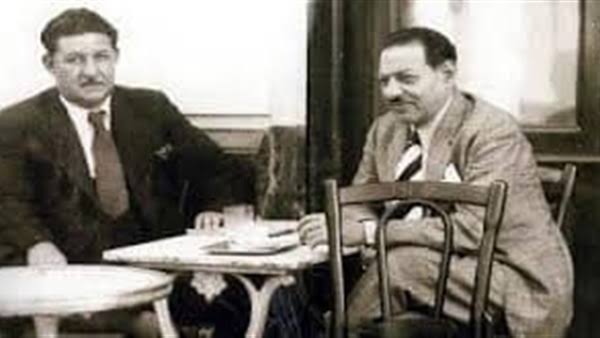
Q: Despite the intense artistic between El Reyhani and El Kassar, your grandfather worked with them both. Didn’t they mind having a partner who also worked for their biggest rival?
A: Not at all, while they did engage in competition, it was a friendly one.
Q: Why do you think Darwish still remains a household name, in spite of the fact that it has almost been a hundred years since his passing?
A: It’s because of his contribution to the development of Arabic music. He also provided a revolutionary voice to the oppressed Egyptian masses who were suffering under the British occupation at the time. This is why he was hailed as “the artist of the people”; he was also modest and considered himself part of the wider community and his modesty was reflected in the way he signed his letters as “the servant to Arabic music”.
He also learned to play and write music from the Italian institute, and would often go see internationally renowned operas, and he would use such influences to further evolve Arabic music. He was also the first person to use polyphony in Eastern music.
Q: What is polyphony?
A: It’s when two singers simultaneously sing two different lyrics to the same melody without harmonically clashing.
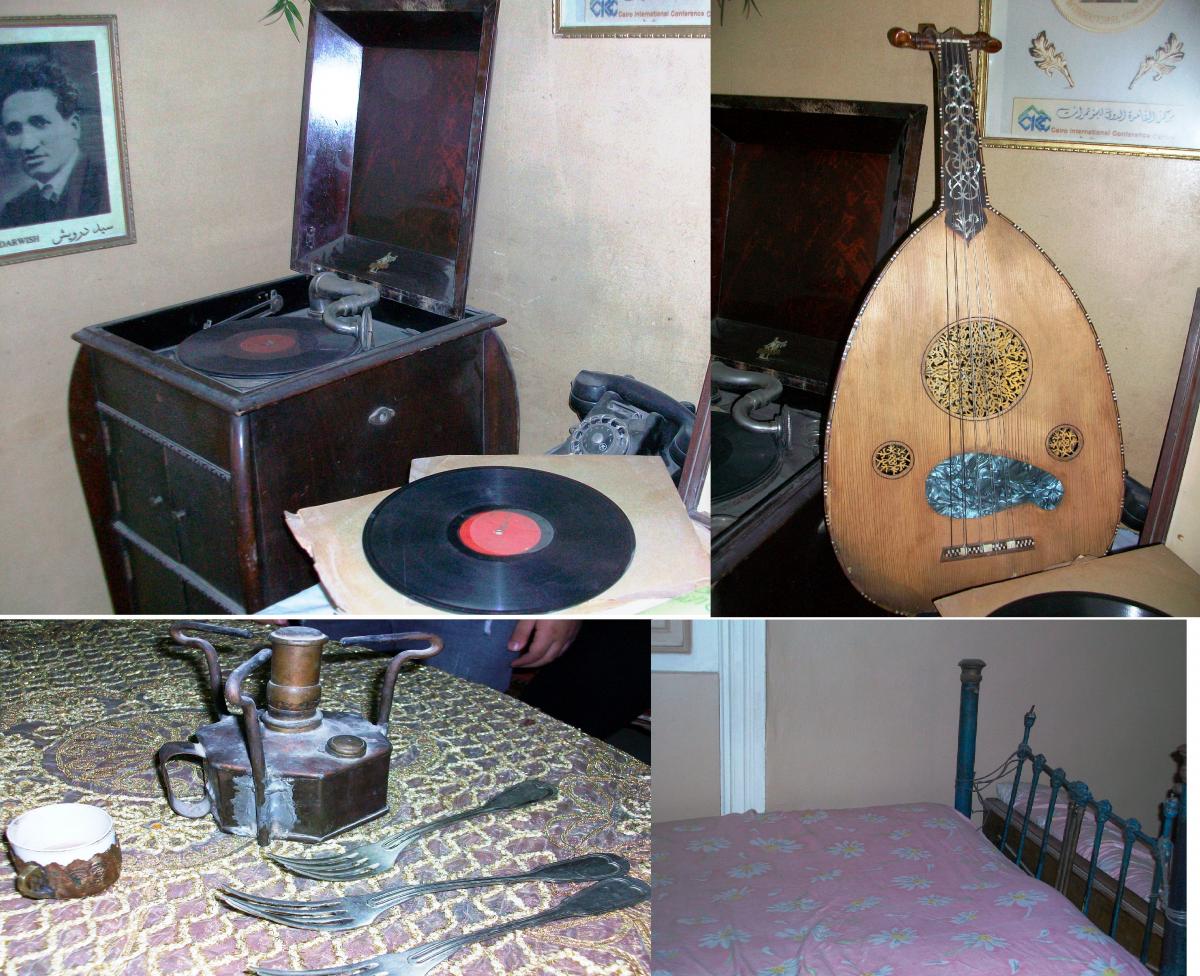
Q: Do you think Sayed Darwish gets overlooked?
A: He deserved more glory he received during his lifetime, most of his songs were written in partnership with Mounira El Mahdia, Naguib El Rehany, and El Kasser. He also had a massive influence on these partners, for instance when El Mahdia wanted to change the melody to “Cleopatra” my grandfather refused to give in to her requests. After he passed, she asked Mohamed Abd El Wahab to provide the melody of the final two parts of “Cleopatra”.
Q: Speaking of Mohamed Abd El Wahab, do you feel any resentment towards him for altering your grandfather’s melodies?
A: I am one of Mohamed Abd El Wahab’s biggest admirers and I cannot say that he altered or insulted any of my grandfather’s work. Though he did borrow more than four lyrics and incorporated them into his own melodies. The way he did that was actually clever, even if he did borrow more than four lyrics, which exceeds how many lyrics artists are allowed to borrow from each other.
Q: What about Mohamed Abd El Wahab’s alleged interference in the Egyptian national anthem “Bilady, Bilady” which was one of your grandfather’s compositions?
A: That is not true, my grandfather provided the entire melody to that anthem and Greek distributor Andre Ryder distributed it and Abd El Wahab only provided the orchestral work.
Q: You said that your grandfather faced injustices in life and death? What do you mean by that and what kind of injustices did he face?
A: He had a large influence over the Egyptian masses, and inspired many to go into the streets and protest against British occupation. It is this influence that led to him getting poisoned and killed. His death largely fell under the radar as it happened in the midst of the 1919 Revolution and people were preoccupied with Saad Zaghloul’s return from exile. So he died in silence and was buried in silence. His friends, Bayram al-Tunisi, Badie' Khayri, and El Rehani were devastated by his passing and El Rihani even wrote the song “Men Meyet Ela Meyet” (From Death to Death) after the tragic event.
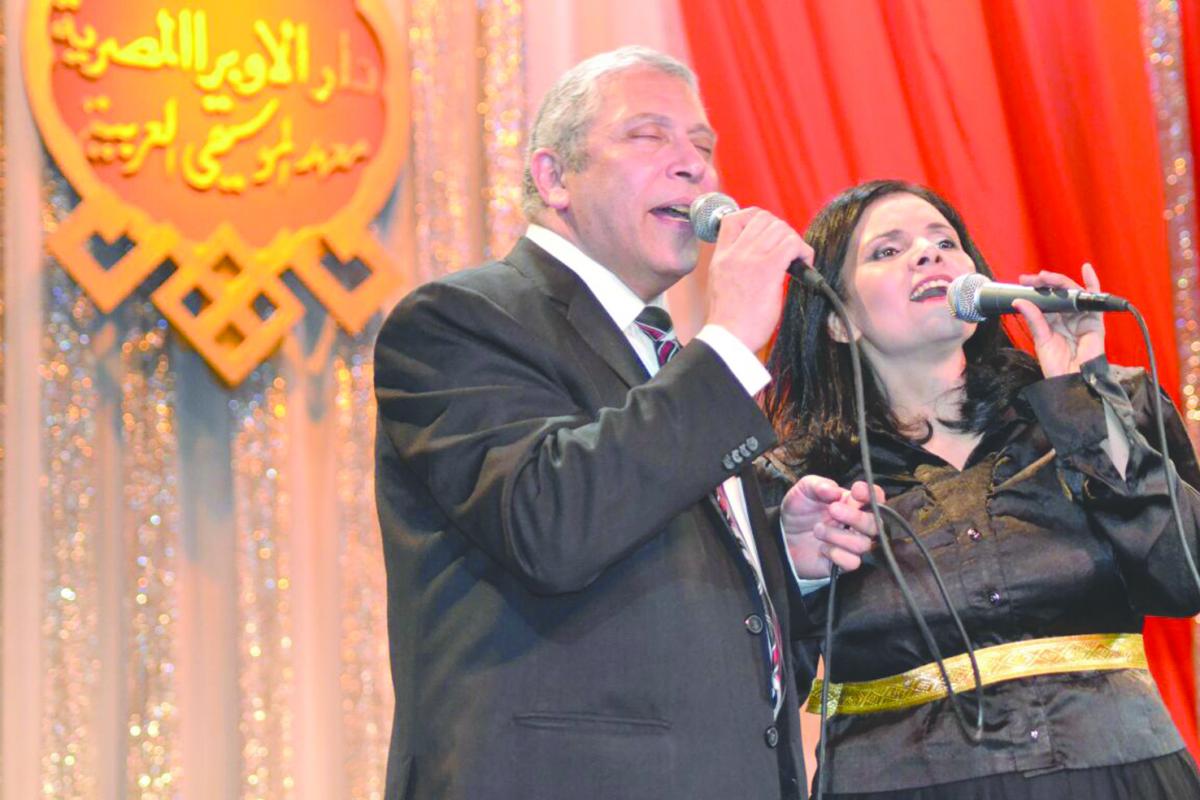
Q: Do you mean to say that Darwish was killed and didn’t die from a drug overdose?
A: Of course, my grandfather never touched drugs and that is one of the slanderous rumors that surrounded him after his death. How could an artist who reached his level of success be a drug addict, he actually had a big voice in the fight against drugs as he wrote songs like “Yoharam Sherbeck Ya Goza” (It is Sinful to Drink), and “Masr Ayza Gama3a Faykeen” (Egypt Needs Sober People). The British occupation forces poisoned his last dinner with arsenic, and it was during his last days when he was doing the final rehearsals for the song “Misr Watanena, w Saad Amalna” (Egypt is Our Country and Saad is Our Hope), which he planned to sing when Saad Zaghlool came back to Egypt.
Q: Why didn’t your family request an autopsy on your grandfather’s corpse then?
A: My father was only a child at the time, but the rest of the family did request that the corpse is returned for further investigations. However, the request was refused and my grandfather was buried instantly to cover up the murder, which was done to silence the influential voice of Saad Zaglool.
Q: Could you tell us about the Sayed Darwish Association?
A: It was founded in 1966 with the purpose of preserving my grandfather’s musical legacy. Its first president was Badie' Khayri, and many others would succeed him at that position after he passed away, for instance, there was journalist Sanaa Fatah Allah and my own father Hassan Darwish. I am its current president and have overseen many projects such as the creation of the Sayed Darwish Band 2006 to continue to sing his songs. What has really brought me joy is the fact that many young people and children have become members of the band, which says to me that my grandfather’s music still resonates with the youth.
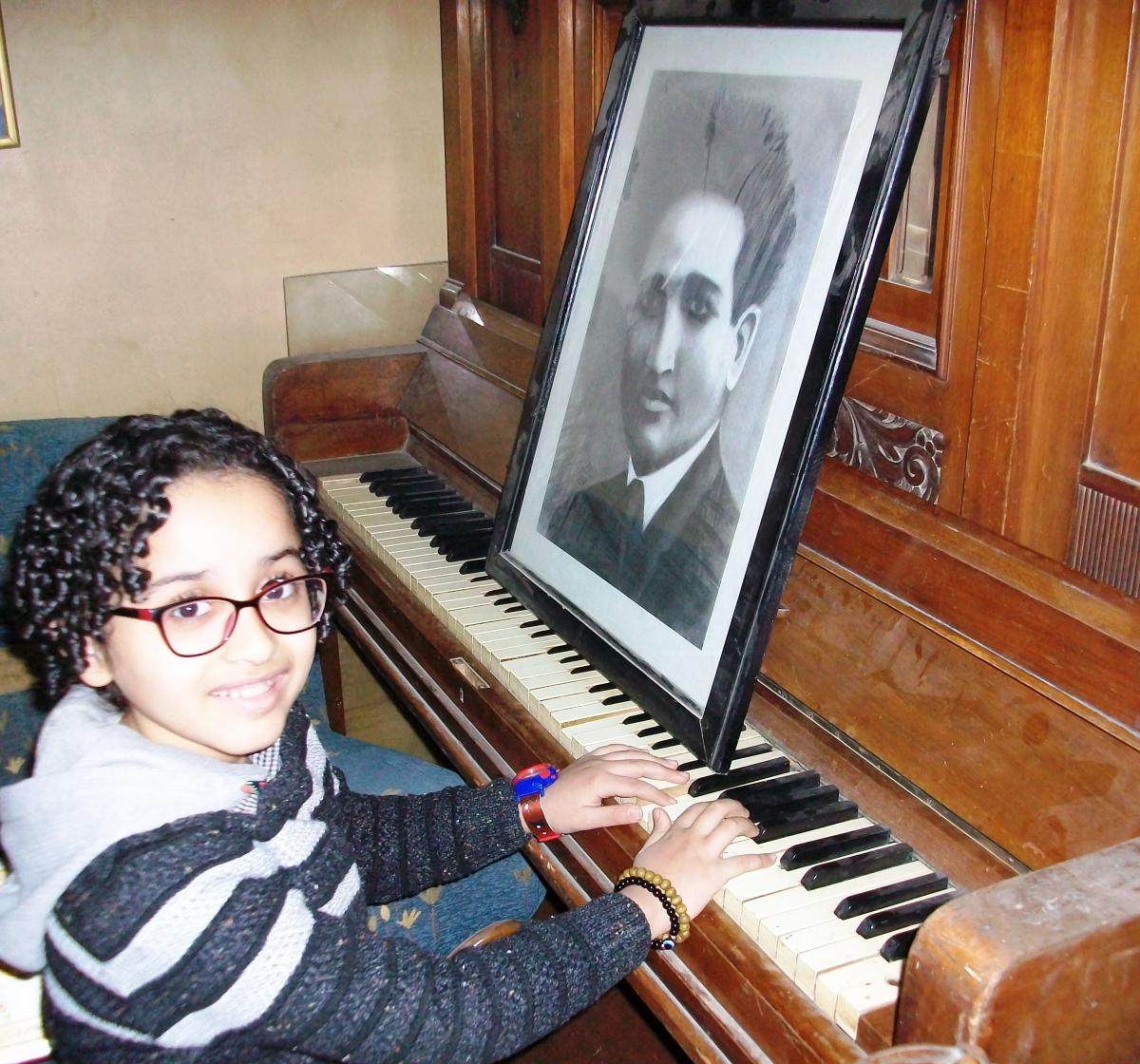
Q: Could you tell us more about the activities your Association is currently doing?
A: Our most important success is that we prevented my grandfather’s legacy from falling into obscurity and that we brought back his songs to large crowds in theaters.
Q: An addition to the band, what else is the Association doing to spread your grandfather’s legacy?
A: There are many things I wanted to do, but could never get around to doing them for various reasons. I would like to hold concerts in larger venues to attract larger crowds, but we lack the financial resources for that. We asked for the Ministry of Culture for help, but it hasn’t done anything so far and I have grown tired of promises from large financiers who seem to lose interest in these plans after media hype starts to wane.
